Under impact of trade war, US makes surprise deal with EU
The United States and the European Union (EU) have surprisingly agreed to suspend a trade war that was initiated by US President Donald Trump and that risked disrupting their economies.
Trump and European Commission President Jean-Claude Juncker emerged out of negotiations on Wednesday with an announcement of a trade truce that caught observers by surprise.
“We want to further strengthen this trade relationship to the benefit of all American and European citizens,” Trump said in a statement after meeting with Juncker and during a joint press conference at the White House Rose Garden on Wednesday.
“We agreed today, first of all, to work together towards zero tariffs, zero non-tariff barriers, and zero subsidies on non-auto industrial goods,” he said.
While there were few details about the agreement, the mere fact that it was struck defied earlier fiery rhetoric from Trump and counter-rhetoric from the EU.
Trump had recently described the EU as “a foe” in trade, citing the bloc’s trade surplus with the US and describing it as a risk to the American economy. He imposed steep tariffs on steel and aluminum imports from several countries earlier this year, including most prominently from EU member states.
In retaliation, the EU slapped tariffs on such American goods as tobacco and motorcycles, prompting Trump to suggest that hefty levies on European goods, notably cars, could be on the way.
Before the talks, reports had said Juncker was not optimistic about a potential deal with Trump.
The European Commission has already sent Washington an 11-page document warning that any such measure would be counterproductive as 120,000 American jobs are directly dependent on European auto manufacturers.
The US measures had already backfired — at least partially — by causing difficulties for certain working-class communities within the US.
On Monday, the US Department of Agriculture announced that it would provide up to $12 billion in emergency relief for farmers affected by the trade war against the EU and China, among others.
Furthermore, Agri-Pulse, a US-based farm group, estimates that Trump’s tariff war has already cost American corn, soybean, and wheat farmers a collective $13 billion, one billion dollars more than what his administration has offered as help.
‘Major US concession’
Juncker said after the talks the two sides had agreed that as long as they were negotiating on trade, they would hold off on further duties, including potential American tariffs on cars and auto parts.
He later told journalists that it was a “major concession” on Trump’s part and that he expected the American president to follow through on it.
Trump hailed the meeting on his twitter account, saying, “Great to be back on track with the European Union. This was a big day for free and fair trade!”
The agreement is a step back from Trump’s signature import protections for American metals producers, too, as the two leaders sought to “resolve” US duties on steel and aluminum and Europe’s retaliatory tariffs.
“It is the first time that the Americans agreed to reassess the measure that they have taken in the steel and aluminum sector” Juncker said.
European governments and EU officials hailed the Trump-Juncker agreement as a significant success.
Relentless Israeli ceasefire violations justify need for self-defense: Lebanese MP
Tel Aviv tells Damascus Israeli forces will remain in occupied territory: Report
Dec. 22: ‘Axis of Resistance’ operations against Israeli occupation
‘Abhorrent’: Oxfam says only 12 trucks delivered aid in North Gaza since Oct.
VIDEO | Leader receives religious eulogists on Hazrat Fatima birth anniv.
Pope Francis slams Israel’s ‘machine-gunning’ of Gaza children
US hostage-taking of Iranian nationals violation of intl. law: Deputy FM
VIDEO | Carol Singers for Palestine on London’s Parliament Square


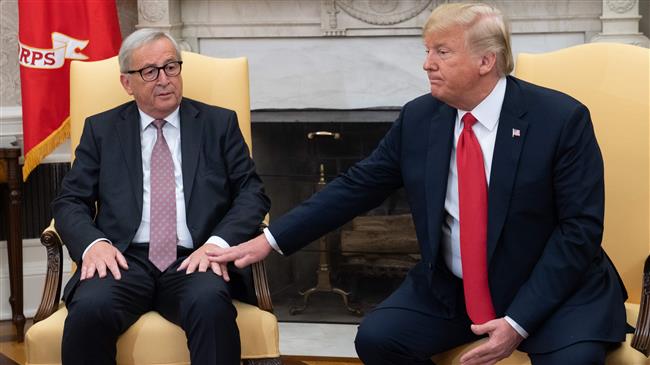



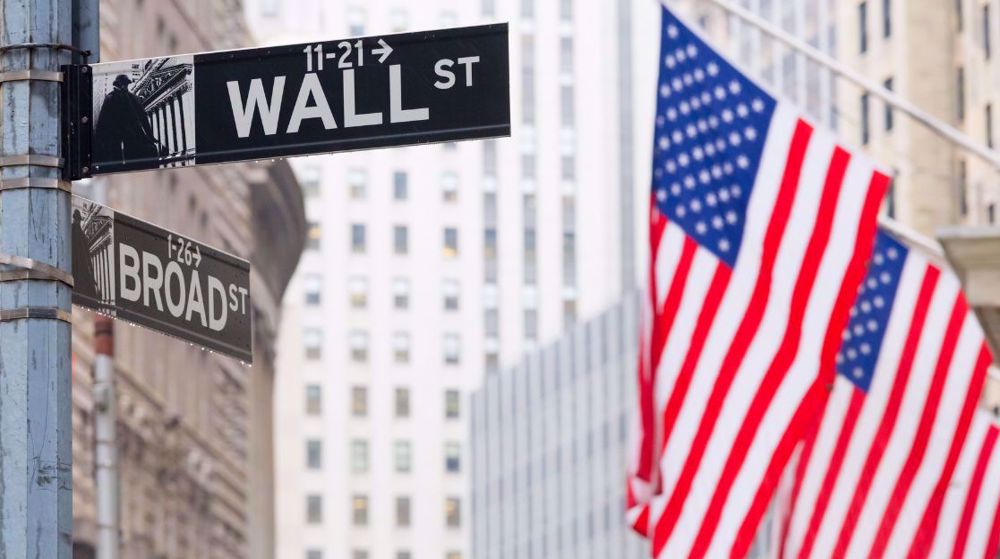



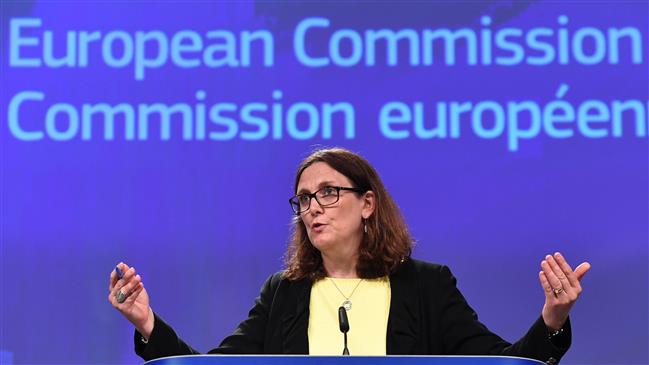
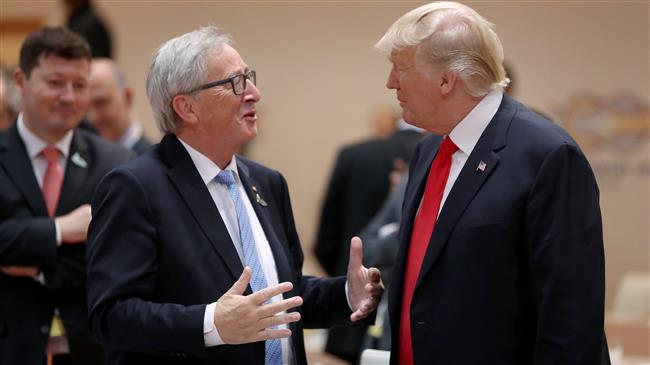
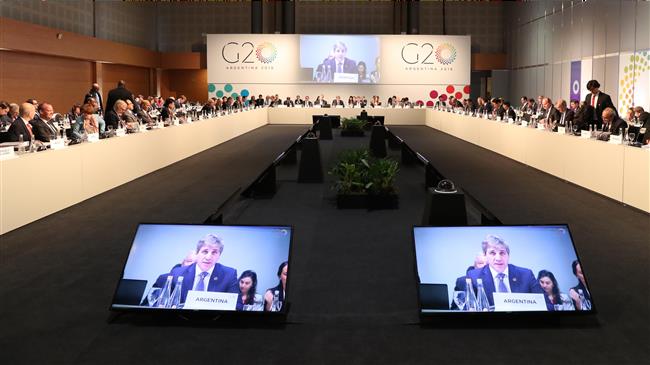
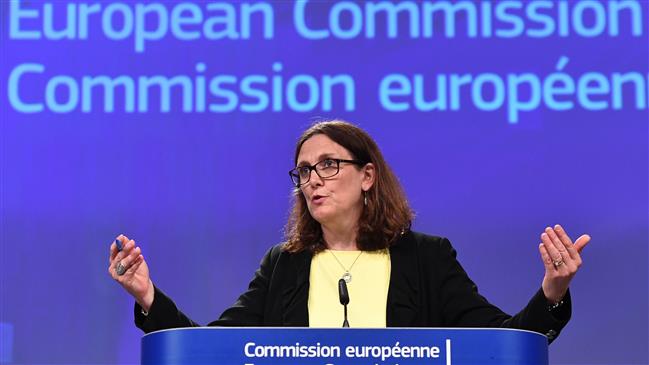

 This makes it easy to access the Press TV website
This makes it easy to access the Press TV website